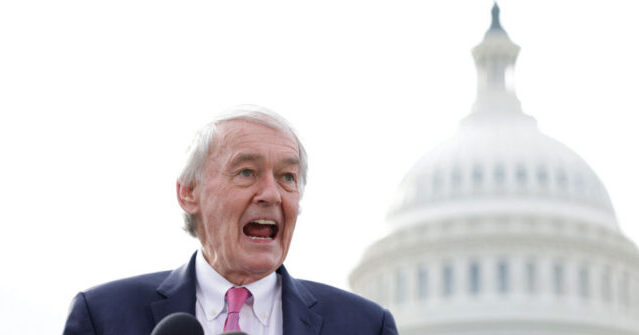It has been 15 years since the global financial crisis of 2008 – a long time – but it hasn’t gone away.
Its consequences, in fact, still define our world. Why is the U.S. government so deeply in debt? How does Wall Street get so much money? What do they do exactly? Why are housing prices so high? Why do our leaders stoke racial conflict? Why have so many Americans concluded that their system is rigged? In every case, the answers to those questions is the same. It all began in 2008. Now, 2008 and its aftermath is a complex story, but let’s just sum up in the broadest possible terms what happened.
Big financial institutions took foolish risks and nearly blew up the entire U.S. economy. We knew right away what had happened and who did it, but nobody was ever punished. The reckless bankers responsible got off; so did the politicians who encouraged the reckless bankers to be reckless. Nobody went to jail. Nobody was even banished from the industry. In fact, some of the wrongdoers even got their bonuses that year. So, we had an economic collapse, but it didn’t hurt them at all.
Why? Well, simple. The government bailed out the banks. That was controversial, but bipartisan and at the time, they told us in bipartisan fashion that they were saving capitalism. But they weren’t. In fact, they were inverting capitalism.
What happened next is very simple. Wall Street was allowed to privatize its gains but socialize its risks. That meant if things went well, the finance people got rich, in fact, richer than any group in human history, but if things went south, the government, you, would swoop in to save them – pretty good deal. But for more than a decade, very few complained about this arrangement because things went very, very well. Wall Street boomed and the root of Wall Street’s success, no matter what they tell you, was low interest rates, not new innovation, low interest rates. Low interest rates make a bull market inevitable.
So, in a normal, non-distorted capitalist economy, companies become valuable, more valuable, when they produce more goods and services that people want to buy. But in an economy controlled by monetary policy run by the Federal Reserve, companies become valuable when interest rates decline.
For 13 years, interest rates remained near zero. In retrospect, now that it’s ended, this was crazy behavior. These were emergency measures declared by the Federal Reserve after 2008, but they never ended. And because they never ended for 13 years, the American economy was distorted beyond recognition in ways too numerous to count. Venture capital and private equity exploded, and so did cryptocurrency, so did asset prices, particularly real estate.
There was an ocean of money flooding the system, and the people who pay half the tax rate you do benefited most. They started buying third houses and flying private. But there was also a problem that you didn’t hear a lot about with low interest rates. If interest rates were at zero, how do you get meaningful returns on your money? This was a problem that virtually every investor faced for more than a decade, very much including the banks. At some point, investors became tempted to make very risky bets. If they wanted to produce returns, they had to.
As they say on Wall Street, “Tina, there is no option.” One of the risky bets that banks made was loading up on long-term Treasury bonds from the U.S. government as a surrogate for cash, though, of course, bonds are not cash. They’re different from cash, as we’re now learning, but that worked fine as long as interest rates remained low. But once interest rates rose as a response to inflation as obviously they were always going to do. (Nothing lasts forever, including zero interest rates). Once that happened, those bonds were worth less than the banks had paid for them and so the banks began to fail. You are seeing that right now.
You’re also seeing, revealed for everyone to see, the other effect of 13 years of artificial Fed-driven prosperity, and that is a lot of silly, frivolous people in charge. They’re like inherited money people: They think they earned it, but they didn’t. Because when money is free from the Fed, you don’t have to be a serious person to get rich. You can do whatever you want because there’s no consequence. You can put BLM logos on your website. You can spend investor funds on female empowerment ski weekends in Tahoe. When interest rates are zero, you can do anything because making money is easy. Everybody is a genius. Anyone can do it, and unfortunately, a lot of very stupid people did do it.
On Friday, as you know, Silicon Valley Bank (SVB) failed. That became the second-largest bank failure in American history. Then on Sunday, authorities took over Signature Bank in New York – that became the third-largest bank failure in American history.
Then today, shortly after the markets opened, trading in several regional banks had to be halted. Western Alliance was down almost 80%. First Republic, which of course, Jim Cramer endorsed just a few days ago on CNBC, that was down nearly 70%. Jim Cramer is always welcome to come on this show for amusement purposes. PacWest, down 50%, Comerica down 40% and so on.
There was panic, of course, reflected in markets and it wasn’t just regional banks that were affected. For a while this morning, you could not even trade stock in Charles Schwab, venerable Charles Schwab, Schwab, it down 25% and tripped a circuit breaker. That’s bad. In fact, that kind of panic could quickly conceivably become a catastrophe. On the brink of catastrophe, you need one thing – strong, competent leadership. But we don’t have that. We have Joe Biden. Today, he shuffled out to the podium and announced a bailout.
PRESIDENT BIDEN: I want to briefly speak about what’s happened to the Silicon Valley Bank and Signature Bank today. Thanks to the quick action of my administration, over the past few days, Americans can have confidence that the banking system is safe. Deposits will be there when you need them. Small businesses across the country, the deposit accounts at these banks can breathe easier, knowing they’ll be able to pay their workers and pay their bills.
All right. So, the money the Biden administration is using for this bailout apparently is coming from the FDIC. So, the feds have it covered. Don’t worry about the details. Everything’s totally fine.
Hold on. Slow down, pal. How did this happen? Can we get an explanation for that? Don’t we have regulators and how did those regulators, since we’re pretty confident they exist, are taking big salaries, how did they miss the fact that SVB was insolvent, Apparently for months and not in some complex credit default swap way? You’re going to spend 5,000 words trying to understand, but in a really simple way that’s easy to understand. Their liabilities were bigger than their assets. Very simple. How did nobody notice that, the people were paid to notice it? Well, Joe Biden, unfortunately answered none of those questions. He just ran for the door.
BIDEN: Thank you. God bless you and may God protect our troops. See you in in California.
REPORTER: Mr. President, what do you know right now about why this happened and can you assure Americans that there won’t be a ripple effect?
REPORTER: Do you expect other banks to fail, Mr. President?
REPORTER: Should all depositors be protected at all banks?
WHITE HOUSE AIDE: All right, thank you, everybody. OK.
Do we know why this happened. He is trying to figure out how to work the doorknob.
What we know is the Biden administration is backstopping these deposits. OK, but that’s not the end of the story. In some ways, it’s the beginning. Here’s the part where you pause and ask yourself a question that too few seem to be considering right now. They’re doing this. What are they going to get in return? Something for sure.
Remember that after 2008, the Obama administration, Eric Holder, swooped in and imposed DEI – diversity, equity and inclusion standards – on the entire financial sector and that’s one of the main reasons are big banks are now increasingly incompetent and also one of the reasons Americans are so divided by race. Ideologues use



Connect with us on our socials: